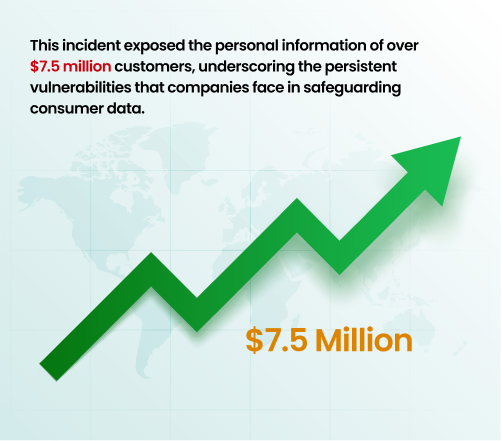In a stark reminder of the escalating cybersecurity threats in the digital age, boAt, a leading Indian consumer electronics brand known for its audio products and smartwatches, became the latest victim of a significant data breach.
This incident exposed the personal information of over 7.5 million customers, underscoring the persistent vulnerabilities that companies face in safeguarding consumer data.

The Breach
The breach came to light when a hacker, operating under the pseudonym ‘ShopifyGUY’, claimed responsibility for infiltrating boAt Lifestyle’s data repositories.
The leaked information, comprising around 2GB of data or roughly 7.5 million customer records, included names, contact numbers, addresses, email IDs, and customer IDs.
This breach not only compromises personal information but also opens the door to more sinister threats such as financial fraud, identity theft, and phishing scams.
Implications
The ramifications of such a data breach are far-reaching. Beyond the immediate loss of personal information, affected individuals face the risk of sophisticated social engineering attacks.
These attacks leverage the stolen data for illegal purposes, including but not limited to, extracting financial information, impersonating individuals for fraud, and more.
This incident has once again highlighted the importance of robust cybersecurity measures and the need for continuous vigilance in the digital sphere.

Response and Analysis
In the aftermath of the breach, attempts to reach boAt Lifestyle for comments remained unanswered at the time of reporting.
The lack of immediate communication from the company’s side points to a need for a more proactive crisis management strategy.
Security experts have stressed the urgency of notifying affected users, conducting a thorough investigation into the breach, and fortifying security measures to avert future incidents.
Financial Implications
Despite the setback, boAt has been a formidable player in the Indian consumer electronics market, boasting a revenue of over Rs 3,000 crore as reported in March 2023.
The company’s journey from its inception in 2016 to becoming a leading wearable brand in India exemplifies its market resilience and growth potential. However, incidents like these not only have immediate financial repercussions but can also tarnish brand reputation, potentially affecting long-term growth and consumer trust.
Mitigata’s Role: A Hypothetical Scenario

Had Mitigata been boAt’s cybersecurity and cyber insurance partner at the time of the attack, the narrative could have been significantly different. Mitigata, with its expertise in cybersecurity solutions, would have employed a multi-layered defence strategy encompassing real-time threat detection, advanced encryption for data at rest and in transit, and rigorous access controls to minimise the risk of a breach.
Moreover, in the event of a data leak, Mitigata’s incident response team would have swiftly mobilised to contain the breach, assess the damage, and initiate recovery processes, thereby mitigating the impact on both the company and its customers. Coupled with cyber insurance, boAt would have had financial protection against the direct costs associated with the breach, including legal fees, customer notification, and credit monitoring services for affected individuals.
Conclusion
The boAt data breach serves as a cautionary tale about the ever-present cyber threats facing digital businesses today. It emphasises the necessity of adopting comprehensive cybersecurity measures and the value of cyber insurance in managing risk.
For companies like boAt, partnering with cybersecurity firms like Mitigata can not only fortify their defences but also ensure resilience against the financial and reputational damages of cyber incidents, ultimately safeguarding their customers and their future.

